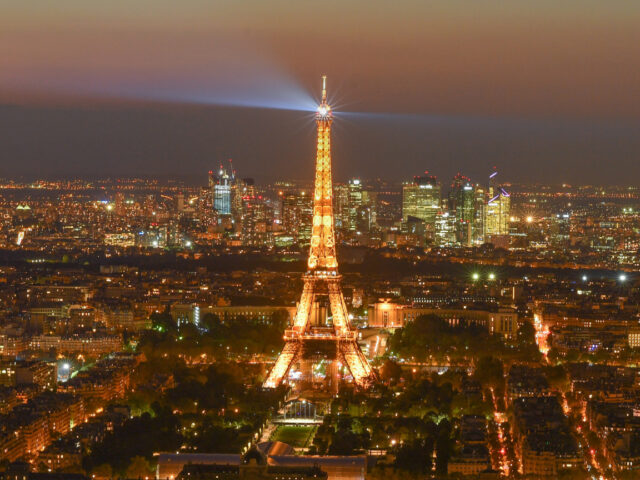The Eiffel Tower has now officially been hit by energy rationing measures, with Parisian authorities announcing that the landmark will go dark earlier to save energy.
Authorities in the French capital of Paris have announced that the Eiffel Tower has now officially been hit with energy rationing measures, forcing the monument to go dark as part of measures aimed at dropping the capital city’s energy usage.
With the energy crisis continuing to rage across Europe, various local and national bodies are taking measures aimed at reducing supply strain in the hopes that they can avoid energy rationing and rolling blackouts.
In this, Parisian officials are no different, with left-wing publication Libération reporting that the city’s mayor, Anne Hidalgo, has announced that the monument will be illuminated for over an hour less each day.
The reduction is part of a suite of measures being implemented by the mayor all aimed at reducing energy usage in the city by 10 per cent, though it is not thought that the turning off of the tower’s lights will actually make that much of a difference to the city’s energy bill, with it instead being seen as a symbolic measure.
“The city must lead by example,” Hidalgo said. “Paris will be at the forefront to act.”
‘End of Abundance’ — President Macron Warns of Public Unrest in France as Energy Crisis Biteshttps://t.co/zqCmxPBBLQ
— Breitbart London (@BreitbartLondon) August 24, 2022
Meanwhile, more practical measures aimed at getting energy usage in the city down have also been announced, with the Parisian mayor declaring that public buildings — with the exceptions of nursing homes and creches — will be mandated to lower their thermostats by a degree, going down to as low as 12 degrees at night.
The city is also implementing a raft of rules on the heating of swimming pools, which now must be heated to one degree less than usual, and must only be heated at certain times.
Such measures echo moves already taken at a national level in Germany and Italy, with both countries limiting public buildings to being heated to a maximum of 19°C (66°F).
In Germany, public buildings — bar the likes of hospitals — have also been forbidden from heating their hallways, while tap water for washing hands will also no longer be heated via means of a boiler or instant heating device.
Minimum heating laws mandating that rented accommodation be of a certain temperature have been lifted in addition, supposedly for the purpose of allowing tenants to voluntarily lower their thermostats to save energy without their landlord getting in trouble.
Another law banning public shops from leaving their doors open has also been put in place by officials, though local authorities have readily admitted that they will not be able to police this, along with a number of other energy-saving measures.
“We will not be able to check whether doors are always closed around the clock,” the general manager of the German Association of Towns and Municipalities, Gerd Landsberg, said regarding the restriction, noting that it would instead largely be left up to the German public whether or not they obey the measure.
Winter of Discontent: Germany to Implement Energy Rationing Amid Fears of Gas Riotshttps://t.co/Z8WXZ94Qjb
— Breitbart London (@BreitbartLondon) August 25, 2022

COMMENTS
Please let us know if you're having issues with commenting.